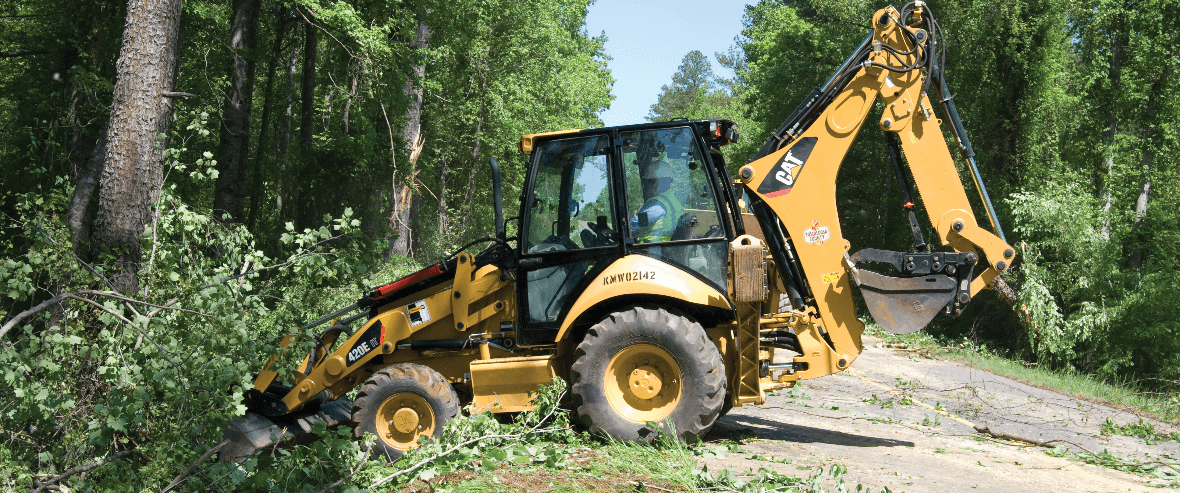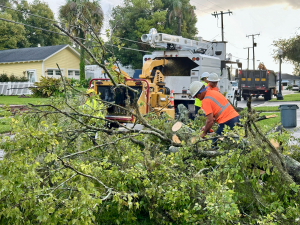Mar 25, 2025
How to Prepare for Hurricane Damage Cleanup Before the Storm Hits
Hurricanes are powerful forces of nature that can leave behind significant damage, ranging from fallen trees and debris to severe flooding and structural destruction. While much of the focus is on preparing for the storm itself, planning for cleanup in advance can make a substantial difference in how quickly and efficiently recovery efforts take place. By taking proactive steps before the hurricane arrives, homeowners and business owners can minimize risks, streamline cleanup efforts, and ensure a safer and smoother recovery process.

Understanding the Potential Damage
Hurricanes bring a combination of high winds, heavy rainfall, and storm surges, all of which contribute to widespread damage. Floodwaters can ruin homes and businesses, while strong winds can knock down trees, power lines, and even entire buildings. Flying debris can cause further destruction, and power outages can last for days or even weeks. Preparing for cleanup in advance requires an understanding of the types of damage that may occur and developing a plan to address these challenges.
Securing Essential Cleanup Supplies
One of the most important steps in preparing for hurricane damage cleanup is ensuring that essential supplies are readily available. In the aftermath of a major storm, local stores may quickly run out of necessary items, and access to certain areas may be limited. Stocking up on cleaning products, gloves, trash bags, tarps, and basic repair tools can help expedite the cleanup process. Additionally, having access to a generator, flashlights, and extra batteries will be valuable in case of power outages.
Creating a Post-Storm Cleanup Plan
A well-thought-out cleanup plan can significantly reduce stress and confusion after the hurricane has passed. Knowing which areas to check first, how to document damage for insurance claims, and whom to contact for professional assistance can make the recovery process more manageable. Homeowners should identify the most vulnerable areas of their property and determine what measures can be taken in advance to mitigate damage. Business owners should create emergency response plans that include employee safety, securing inventory, and having a strategy in place to resume operations as soon as possible.
Protecting Important Documents and Valuables
Hurricanes can lead to extensive water damage, making it essential to safeguard important documents before the storm arrives. Storing legal papers, insurance documents, identification, and financial records in waterproof containers can prevent them from being destroyed. Digital copies of essential paperwork should also be stored in a secure cloud-based system. Valuables, electronics, and sentimental items should be moved to higher ground or placed in waterproof storage solutions to protect them from potential flooding.
Preparing for Debris Removal
After a hurricane, large amounts of debris can accumulate, blocking roads, driveways, and access points to homes and businesses. In preparation for this, it is important to have tools such as chainsaws, rakes, and shovels available to help clear pathways. Hiring professional debris removal services in advance or knowing where to access municipal cleanup programs can speed up the process. Having a designated area for temporary debris storage until it can be properly disposed of will also help keep cleanup efforts organized.
Understanding Health and Safety Precautions
Post-hurricane cleanup can be dangerous due to hazards such as contaminated floodwaters, unstable structures, and downed power lines. Wearing protective gear, including gloves, masks, and sturdy boots, can prevent injuries and exposure to harmful substances. Individuals should also be aware of the risks associated with mold growth in water-damaged properties and take appropriate measures to dry and disinfect affected areas. If structural damage is severe, it is best to wait for professional assessment before attempting any major repairs.
Coordinating with Local Resources and Support
 Community resources play a vital role in hurricane recovery efforts. Before the storm hits, it is beneficial to identify local emergency contacts, government disaster response teams, and nonprofit organizations that provide cleanup assistance. Knowing where to access temporary shelter, food, and medical aid can provide crucial support in the aftermath of a hurricane. Many communities also organize volunteer cleanup efforts, which can help expedite the process for those in need.
Community resources play a vital role in hurricane recovery efforts. Before the storm hits, it is beneficial to identify local emergency contacts, government disaster response teams, and nonprofit organizations that provide cleanup assistance. Knowing where to access temporary shelter, food, and medical aid can provide crucial support in the aftermath of a hurricane. Many communities also organize volunteer cleanup efforts, which can help expedite the process for those in need.
Reviewing and Updating Insurance Policies
Insurance coverage is a critical factor in hurricane recovery. Reviewing policies before the storm ensures that homeowners and business owners understand what is covered and what steps need to be taken to file a claim. Taking photos and videos of the property before the hurricane arrives can serve as important documentation for insurance purposes. Keeping policy numbers and contact information readily available will also make it easier to initiate claims in a timely manner.
Establishing a Communication Plan
Hurricanes often disrupt communication networks, making it difficult for families, employees, and emergency responders to stay in contact. Establishing a communication plan in advance can help ensure that loved ones and business associates know where to check in and how to share updates. Investing in battery-powered radios or satellite communication devices can provide a backup means of receiving emergency information when cell service is unavailable.
More Details